Top Influential Psychologists Today

Though we can cite instances of scientists and philosophers “doing” psychology as far back as ancient times, and psychological questioning picked up during the Enlightenment period in Europe, psychology did not emerge as a formal field of study and experimentation until around the 1830s. Nevertheless, psychology is a uniquely modern field, always growing, shifting, and adding to its scope. Most people have taken a psychology class, whether in college or high school, but many are not aware of how present psychology is in many aspects of our lives.
Considering a degree in psychology? Visit Our Psychology Hub, where you’ll find the best psychology colleges and universities, career information, interviews with top psychologists, influential scholars in the field of psychology, great books, a history of the discipline, and more.
What’s the value of influence in the modern world? Learn about influence networks.
We also offer rankings of the best degrees available using our innovative ranking methodology that avoids bias by analyzing billions of data points to provide an objective scoring system. With our rankings, you’ll be able to find the best online undergraduate psychology programs or the best advanced specialized programs such as organizational psychology.
Psychology is so much more than just the “study of the mind.” The most influential people in psychology dive deep into niche studies, often crossing disciplines, and producing results that affect concepts as fundamental as the language we use in regular speech, and as overarching as how we understand memory and cognitive behavior. Even if you have no interest in the field beyond your 101 experience, psychology has plenty to tell you about yourself.
The following 25 people are the most influential working in psychology today. Through professorship, writing and publication, editing journals and anthologies, activism, and public discourse they have all played a major role in molding the state of the field, as well as law, technology, education, media, and your daily life. Some are certainly not here without controversy.
In what follows, we look at influential psychologists over the last decade. Based on our ranking methodology, these individuals have significantly impacted the academic discipline of psychology within 2010-2020. Influence can be produced in a variety of ways. Some have had revolutionary ideas, some may have climbed by popularity, but all are academicians primarily working in psychology. Read more about our methodology.
Note: This isn’t simply a list of the most influential psychologists alive today. Here we are focused on the number of citations and web presence of scholars in the last 10 years. There are other highly influential scholars who simply haven’t been cited and talked about as much in the last 10 years, whereas some new faces have been making a splash in the news, speaking events, and publishing, publishing, publishing. Our AI is time sensitive. To find some of the big names you might have expected to see here, we encourage you to use our dynamic ranking system and check influence over the past 20 and 50 years.
Top Influential Psychologists
2010-2020
Want more? Discover the history of influential psychologists: Of All Time | Last 50 Years | Last 20 Years | Black Psychologists | Women Psychologists Note: The time-specific links above take you to rankings that dynamically change as our AI learns new things!
1.Martin Seligman
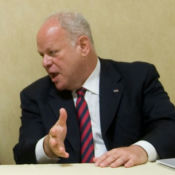
(1942 - )
Albany, New York, USA
Areas of Specialization: Positive Psychology, Learned Helplessness
Martin Seligman currently holds the title of Zellerbach Family Professor of Psychology at the University of Pennsylvania. Previously, he taught at Cornell University, and was the president of the American Psychological Association. Seligman earned his bachelor’s in philosophy at Princeton University in 1964, and his Ph.D. from the University of Pennsylvania in 1967.
Both a prominent psychologist and a popular author of self-help books, Martin Seligman is best recognized for his activity in the field of positive psychology, and his corresponding theories of well-being. Among his work, Seligman is perhaps best known for initiating research in the concept of learned helplessness. Stemming from his interest in depression and the behavior of depressed people, Seligman developed a test using electroshock on canine subjects. In simplified terms, Seligman found that if a subject believes their situation to be truly helpless, they will do little to nothing to try and change it, and accept their fate. He identified this as a “learned” helplessness, which requires intervention to overcome.
Seligman is also recognized for his contributions to positive psychology, as discussed in his book with Christopher Peterson, Character Strengths and Virtues: A Handbook and Classification. In contrast to the Diagnostic and Statistical Manual of Mental Disorders (DSM) which focuses on disorder, Seligman argues that positive psychology focuses on positive characteristics, virtues, and what occurs in the absence of disorder. Other published works by Seligman include Helplessness: On Depression, Development, and Death and Learned Optimism: How to Change Your Mind and Your Life.
Seligman boasts a long list of awards and honors to his name, including a Guggenheim fellowship, and a American Psychological Association Award for Lifetime Contributions to Psychology.
2.Steven Pinker

(1954 - )
Montreal, Quebec, Canada
Areas of Specialization: Evolutionary Psychology, Experimental Psychology, Cognitive Science, Psycholinguistics
Cognitive scientist, linguist, and author, Steven Pinker currently holds the title of Johnstone Family Professor of Psychology at Harvard University. Previously, Pinker taught at Stanford University at Massachusetts Institute of Technology. Pinker earned his bachelor’s in psychology from McGill University in 1976, and his Ph.D. in experimental psychology in 1979 at Harvard.
Pinker is recognized for his interdisciplinary work, combining psychology, cognitive science, and linguistics, and is a vocal proponent of evolutionary psychology and the computational theory of mind. Though he has several decades of research and academic work to his name, Pinker is best recognized as an author of popular science books, in which he expounds on ideas from linguistics and evolutionary psychology in a way accessible to a mainstream audience. In particular, Pinker often builds on the ideas of Noam Chomsky, arguing that language is a unique and innate faculty of the human mind, and that (his own stance) it emerges from evolution and natural selection. Pinker’s views have not been received without controversy.
For his work, Pinker has been recognized as a highly influential voice in psychology, linguistics, and popular science. He has received such awards and honors as being named one of the most influential people in the world by Time magazine, an Early Career Award and a Boyd Candless Award from the American Psychological Association, the Troland Research Award from the National Academy of Sciences, and has twice been a Pulitzer Prize finalist. He is also the first member of the Luxuriant Flowing Hair Club for Scientists (no, really).
Popular books by Pinker include The Language Instinct: How the Mind Creates Language, How the Mind Works, The Stuff of Thought: Language as a Window into Human Nature, and most recently, Enlightenment Now: The Case for Reason, Science, Humanism, and Progress.
3.Daniel Kahneman

(1934 - )
Tel Aviv, British Mandate of Palestine
Areas of Specialization: Cognitive Biases, Behavioral Economics, Prospect Theory, Loss Aversion
Daniel Kahneman is an Israeli-American psychologist and economist who is currently Professor Emeritus of psychology and public affairs at Princeton University’s Woodrow Wilson School. Kahneman is world-famous for his groundbreaking work on the psychology of judgement and decision making. He won the Nobel Prize in Economics for his work on human rationality in economic theory in 2002.
Kahneman, along with his colleague Amos Tversky, is widely known for his work on the cognitive basis of human error stemming from heuristics and biases, which humans use as ordinary aids in decision making. Kahneman’s work (with Tversky) led to his development of prospect theory in the late 1970s. More recently, Kahneman published a popular version of his lifetime of work on errors in cognition in his 2011 best-seller Thinking, Fast and Slow. Kahneman is also known for his work in hedonic psychology, a subfield of psychology focuses on what makes us happy (or unhappy), and leads to fulfillment.
In addition to winning the Nobel Prize, Kahneman has been the recipient of numerous awards and distinctions. He was elected a member of the National Academy of Sciences in 2001. In 2007, he received the American Psychological Association’s Award for Outstanding Lifetime Contributions to Psychology, recognizing his significant contributions to the field of Psychology. For two consecutive years, in 2011 and 2012, he made the Bloomberg 50 most influential people in global finance.
4.Albert Bandura

(1925 - 2021)
Mundare, Alberta, Canada
Areas of Specialization: Cognitive Psychology, Social Psychology, Social Cognitive Theory
Before his passing in July 2021, Albert Bandura held the title of David Starr Jordan Professor Emeritus of Social Science in Psychology at Stanford University. A top name in social psychology, Bandura was born in Mundare, Alberta, Canada, and earned his bachelor of arts at the University of British Columbia in 1949. He soon moved to the U.S. and earned his MA in 1951 and PhD in 1952 at the University of Iowa. Bandura began teaching at Stanford in 1953.
Bandura is among the most cited psychologists in the (relatively) short history of the field. He is considered the founder of social learning theory, and groundbreaking model for understanding human social development. From his famous “Bobo doll experiment”, Bandura developed his theory of how humans imitate the behaviors they observe in others as a kind of “social learning,” i.e. learning what they can and cannot do in social settings. In particular, Bandura was interested in how children learn from the behaviors they observe in adults, especially aggression. This eventually led to the development of social cognitive theory, which examines how social learning affects cognition itself, not just behavior. This has had profound effects on everything from the field itself, to education, entertainment, rehabilitation, and training.
Notable works from Bandura include Self-Efficacy in Changing Societies, Self Efficacy: The Exercise of Control, and Moral Disengagement: How People Do Harm and Live with Themselves.
For his work, Bandura has received numerous awards and honors, including fellowship with the American Academy of Arts and Sciences, the Award for Distinguished Scientific Contributions from the American Psychological Association, the Thorndike Award for Distinguished Contributions of Psychology to Education, the Lifetime Achievement Award from the Association for the Advancement of Behavior Therapy, and several handfuls of honorary doctorates.
5.Jordan Peterson

(1962 - )
Edmonton, Alberta, Canada
Areas of Specialization: Social Psychology, Personality
Jordan Peterson is a Canadian clinical psychologist. He is Professor of Psychology at the University of Toronto, Canada. Peterson became a household name in Canada, the United States, and indeed around the world for his invocation of free speech rights regarding the use of preferred pronouns by students at the University of Toronto. He received his bachelor’s degrees in Political Science and Psychology from the University of Alberta, and his Ph.D. in Clinical Psychology from McGill University.
Since 2016, when Peterson began broadcasting on YouTube his principled opposition to Canada’s Bill C-16, “An Act to amend the Canadian Human Rights Act and the Criminal Code,” Peterson has risen from an academic professor doing research and teaching clinical psychology to a media sensation. He lectures and gives talks regularly on topics such as abnormal, social and personality psychology and has attracted a large following online (numbering in the millions) for his content on personal growth, taking responsibility, as well as the significance of traditional belief systems for psychological health and growth. His book 12 Rules for Life: An Antidote to Chaos, which came out in 2018, was a best-seller. Peterson is also known for his critical stance toward political correctness, which he views as potentially corrosive to open dialogue and healthy society.
Peterson was also a post-doctoral researcher at McGill University and an associate professor of psychology at Harvard University, where he performed research on rises in aggression from drug and alcohol abuse. His intellectual interests range widely; he is also interested in the rise of totalitarian governments and has studied the Cold War period in the West as well as the totalitarian regimes of the Soviet Union and Nazi Germany. He counts among his major influences the pioneering psychologist Carl Jung.
6.Christopher French

(1956 - )
Areas of Specialization: Parapsychology, Pseudoscience, Cognitive Biases
Christopher French is a British psychologist who specializes in the study of the paranormal, referring to events depicted in popular culture and lore that do not have normal or scientific explanations. French is Professor of Psychology at Goldsmiths, University of London, as well as head of the University of London’s Anomalistic psychology research unit.
Chris French has treated a variety of phenomena considered outside science, including extrasensory perception and even astrology. On his popular Skeptic Zone podcast, French has explained that he once held beliefs about paranormal phenomena, but later found psychological explanations for the prevalence of beliefs in such events compelling. In particular, he has performed experiments showing large placebo effects with subjects using healing crystals and other icons of new age and other belief systems in pop culture. He has also studied claims such as alien or UFO abductions, telepathy, ghosts, and faith healing.
French’s course at Goldsmiths and Birkbeck College in the UK is titled Psychology, Parapsychology and Pseudoscience. In addition to his popular podcast, he is former Editor-in-Chief of The Skeptic magazine. He is also a Chartered Psychologist and a Fellow of the British Psychological Society. His book, Anomalistic Psychology: Exploring Paranormal Belief and Experience came out in 2014.
French is well-known in British living rooms, having made regular appearances on ITV’s Haunted Homes program.
7.James Alcock

(1942 - )
Central Butte, Saskatchewan, Canada
Areas of Specialization: Parapsychology, Social Psychology, Psychotherapy
James Alcock is a skeptic, a Canadian educator, and Professor of Psychology at York University in Canada. Alcock is most known for his critical stance towards parapsychology, the study of psychic phenomena like extrasensory perception (telepathy, precognition, clairvoyance, psychokinesis, and psychometry), as well as other purported unexplained reports like near death experiences. Alcock received his Bachelor of Science degree in physics at McGill University, and his Ph.D. at McMaster University.
Alcock’s career in psychology has been largely an attempt to root at pseudoscientific claims that, if accepted, would become a scientific study in psychology. Notably, he is a Fellow and Member of the Executive Council for the Committee for Skeptical Inquiry. He is on the Editorial Board of The Skeptical Inquirer magazine, where he also frequently contributes. Alcock has been so outspoken and successful as a critic of the paranormal that in 1999 a panel voted him one of the top skeptics of the 20th century! Perhaps ironically, he is also an accomplished amateur magician.
Alcock’s book Parapsychology-Science Or Magic?: A Psychological Perspective, published in 1981, as a major factor in psychologist Chris French’s “conversion” to skepticism about paranormal claims in terms of accepted science in psychology.
8.Susan Fiske

(1952 - )
Areas of Specialization: Social Psychology, Stereotype cContent Model, Ambivalent Sexism Theory, Cognitive Miser
Susan Fiske currently holds the position of Eugene Higgins Professor of Psychology at Princeton University. Fiske has previously held positions at the University of Massachusetts Amherst, Carnegie Mellon University, and Harvard University. Fiske completed her undergraduate studies and Ph.D. at Harvard in 1978.
A social psychologist, Fiske is best known for her work in the areas of social cognition, stereotypes, and prejudice. In particular, Fiske’s work is notable for bringing the two fields of cognitive psychology and social psychology together. Fiske has focused on topics including sexism, gender relations, and gender differences in social situations. She also helped develop the Stereotype Content Model. In other significance, Fiske testified as an expert in the U.S. Supreme Court case of Price Waterhouse v. Hopkins.
Published works by Fiske include, Envy Up, Scorn Down: How Status Divides Us, Social Cognition: From Brains to Culture with Shelley E. Taylor, and more recently the 4th edition of Social Beings: Core Motives in Social Psychology.
Fiske is a member of the National Academy of Sciences. She has received numerous awards and honors, including Fellowship with the British Academy, the Distinguished Scientific Contribution Award from the American Psychological Association, a Guggenheim Fellowship, and the William James Fellow Award.
9.Girishwar Misra
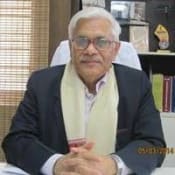
(1951 - )
Gorakhpur, Uttar Pradesh, India
Areas of Specialization: Social Psychology, Indian Psychology
Girishwar Misra is one of the leaders in the emerging field of Indian psychology, where he serves currently as Vice Chancellor of Mahatma Gandhi Antarrashtriya Hindi Vishwavidyalaya, India. Prior to his role as Vice Chancellor, Misra was a Fulbright Fellow at Swarthmore College and at the UnUniversity of Michigan. He received his MA and Ph.D. in Psychology in Deen Dayal Upadhyay Gorakhpur University in India.
Misra is perhaps best known for his contributions to social science and psychology research. Notably, he served as editor of Psychological Studies, a journal of the National Academy of Psychology, India for fifteen years, until the end of 2015. He is also considered a central figure in Indian psychology, which is a field that attempts the systematic study and development of ideas originally from traditional Indian religious and cultural traditions. One interesting area in Indian psychology is the study of now well-known activities such as yoga, meditation, and Ayurveda, the latter the study of alternative medicines from Indian culture, often used for general wellness.
Misra received the National Award for Social Science from the Government of Madhya Pradesh, India, in 2009.
10.Jonathan Haidt

(1963 - )
New York City, New York, USA
Areas of Specialization: Social Psychology, Moral Psychology, Positive Psychology
Jonathan David Haidt currently holds the title of Professor of Ethical Leadership at Thomas Cooley Professor of Ethical Leadership. Previously, Haidt has held positions at Princeton University, and the University of Virginia. Additionally Haidt is the co-founder of the non-profit group Heterodox Academy. In 1985, Haidt earned his BA in philosophy from Yale University, and completed his Ph.D. in psychology in 1992 at the University of Pennsylvania.
Haidt is best recognized for his work in social psychology, specifically in the areas of moral psychology, moral emotions, and positive psychology. Haidt can be credited with developing (or co-developing) such popular concepts as moral disgust, the Disgust Scale, moral elevation, and the social intuitionist model of moral judgement.
Moral foundations theory is perhaps Haidt’s biggest contribution, in which (along with Craig Joseph and Jesse Graham), Haidt attempted to explain cross-cultural moral difference through proposing five “innate” moral foundations: care/harm, fairness/cheating, loyalty/betrayal, authority/subversion, and sanctity/degradation.
Major works published by Haidt include, Flourishing: Positive Psychology and the Life Well-Lived, The Happiness Hypothesis: Finding Modern Truth in Ancient Wisdom and The Righteous Mind: Why Good People Are Divided by Politics and Religion.
11.Rodney L. Lowman

(1949 - )
Areas of Specialization: Industrial-Organizational Psychology, Consulting Psychology
Rodney L. Lowman is president of Lowman & Richardson, a consulting psychology service in San Diego, California, as well as Distinguished Professor Emeritus of Alliant International University. Lowman first earned his BS in business in 1969 at Oklahoma State University–Oklahoma City before earning a BA in psychology at the University of Oklahoma in 1973. He then earned an MA and PhD in industrial-organizational psychology at the Michigan State University in 1979.
Lowman is as well known for his work outside of academia as he is within it. Lowman primarily focuses in industrial-organizational psychology, offering consulting on how psychology principles can be applied to better run organizations; because of this, he is considered a major figure in consulting psychology. In particular, Lowman is interested in ethics, and how ethics can be applied through consulting psychology. As influential in administration as he is in consulting, Lowman has held a variety of high-profile roles, including department head at Louisiana Tech University, Acting President of Alliant International University, and president of Lake Superior State University, as well as board roles on the APA council, and the Committee on Professional Practice and Standards.
Over his career, Lowman has received awards and honors including fellowship with several APA divisions, the Society of Consulting Psychology’s Service Award, and the Richard Kilburg Service Award by the Society of Psychologists in Management.
Notable published works from Lowman include An Introduction to Consulting Psychology: Working With Individuals, Groups, and Organizations and The Ethical Practice of Consulting Psychology.
12.Richard Wiseman

(1966 - )
Luton, England
Areas of Specialization: Applied Social Psychology, Psychology of Performance
Wiseman is Professor of the Public Understanding of Psychology at the University of Hertfordshire in the United Kingdom. Wiseman is known for his insightful and often humorous commentary on human psychology, and his books have been translated into over 30 languages. He is also (along with Chris French and James Alcock) a critic of parapsychology, which he counts as pseudoscience. He received a degree in Psychology from University College London and later received his Ph.D. in Psychology from the University of Edinburgh in Scotland.
Wiseman is involved in a number of projects that, broadly, seek to entertain and educate the public on psychological findings and data. In particular, he has worked with the BBC in a series on lying; his book, The Luck Factor, looks at the role of attitude in attributions of luck (whether we say we’re lucky, or unlucky); as Fellow of the Committee for Skeptical Inquiry he has been active in debunking claims of the paranormal.
Wiseman has an interesting past, having been a street performer in the UK before beginning his academic studies in psychology. He’s also an amateur magician, and launched a website dedicated to publishing jokes and finding “the world’s funniest” joke. His research has appeared in over 150 T.V. programs. He is a regular on BBC Radio 4.
13.Roy Baumeister

(1953 - )
Cleveland, Ohio, USA
Areas of Specialization: Social Psychology, Evolutionary Psychology
Roy Baumeister currently holds the title of Professor of Psychology at the University of Queensland in Brisbane, Australia. He previously has held professorial roles at Florida State University and Case Western Reserve University. Baumeister earned his BA at Princeton University and his MA from Duke University, before returning to Princeton for his Ph.D.
Baumeister primarily works in social psychology, focusing on issues of the self, self-conception, and how the self relates to others. This focus extends to topics including relationships and belonging, irrational behavior, self-destructive behavior, sexuality, self control, and free will. In particular, Baumeister’s most influential work argues that humans have an innate need for belonging and attachment, that we are constantly seeking to satisfy this need, and being dissatisfied in it has significant negative effects in other aspects of our lives.
Popular published works by Baumeister include, Evil: Inside Human Violence and Cruelty, Willpower: Rediscovering the Greatest Human Strength, and more recently, The Power of Bad.
For his work, Baumeister has received awards and honors, such as the James McKeen Cattell Fund Sabbatical Fellowship Award, the William James Fellow Award, and the Jack Block Award.
14.Joseph G. Ponterotto

(1953 - )
Bronx, New York, USA
Areas of Specialization: Counseling Psychology, Acculturation, Immigration, Multicultural Counseling and Education, Psychobiography
Joseph G. Ponterotto currently holds the title of Professor of Counseling Psychology at Fordham University, and is the Coordinator of the Mental Health Counseling Program. Ponterotto earned his BA in psychology at Iona University in 1980, and his PhD in 1985 at the University of California, Santa Barbara. Previously, Ponterotto also taught at the University of Nebraska–Lincoln.
Ponterotto is best known for his work in counseling psychology, particularly in his efforts to bring minority cultural factors (such as race, ethnicity, cultural background, economic class, education level, and the effects of prejudice) to the center of the academic dialogue on counseling. As a practicing clinician, Ponterotto has pioneered survey instruments that take these factors into account, such as the Quick Discrimination Index, the Teacher Multicultural Attitude Survey, the Multicultural Counseling Knowledge and Awareness Scale, and the Multicultural Personality Inventory. These efforts have guided professional counselors in how to better assess their clients across diverse backgrounds. He is also somewhat famous for his 2012 book, A Psychobiography of Bobby Fischer, which examines the psychological development (and downfall) of the former chess champion. Other notable works from Ponterotto include Preventing Prejudice: A Guide for Counselors, Educators, and Parents and Handbook of Multicultural Assessment: Clinical, Psychological, and Educational Applications.
For his work, Ponterotto has received awards and honors including the Early Career Scientist/Practitioner Award from Division 17 of the American Psychological Association, the Visionary Leadership Award from the APA National Multicultural Conference and Summit in Seattle, and the Fordham faculty awards for Distinguished Contribution to Multicultural Education Award and the Scanlon Award.
15.Barbara Fredrickson

(1964 - )
Areas of Specialization: Positive Psychology, Broaden-and-Build Theory of Emotion
Barbara Fredrickson currently holds the title of Kenan Distinguished Professor in the Department of Psychology at the University of North Carolina at Chapel Hill, and is the director of the social psychology program. Additionally, she is on the faculty of the Authentic Happiness program at the University of Pennsylvania, Director of the Positive Emotions and Psychophysiology Laboratory, and President of the International Positive Psychology Association. Previously, she held positions at Duke University and the University of Michigan. Fredrickson completed her undergraduate studies at Carleton College, and earned her Ph.D. at Stanford University in 1990.
Fredrickson is known for her work in the area of positive psychology. In particular, she is recognized for her broaden-and-build theory of emotion, arguing that emotional states signal both psychological and physiological changes in individuals, with an evolutionary significance. Along these lines, Fredrickson argues, positive emotions aren’t superficial, but are in fact crucial to our survival; feeling good emotionally is actually healthy in a physical sense. Fredrickson’s popular book, Positivity: Top-Notch Research Reveals the 3-to-1 Ratio That Will Change Your Life, provides practical application tips for living a positive life. Other works from Fredrickson include, Love 2.0: Finding Happiness and Health in Moments of Connection.
For her work, Fredrickson has received awards including the Templeton Prize in Positive Psychology from the American Psychological Association, the Career Trajectory Award from the Society of Experimental Social Psychology, and the Christopher Peterson Gold Medal.
16.Janet Helms

( - )
Kansas City, Missouri, USA
Areas of Specialization: Theory of Racial Identity, Culture and Ethnicity, Gender Psychology, Self and Identity
Janet Helms is a research psychologist currently August Long Professor of Counseling Psychology at Boston College. She received her B.A. as well as M.A. in Psychology at the University of Missouri–Kansas City. She earned a Ph.D. in Psychology from Iowa State University.
Helms’ work in psychology focuses on her theory of racial identity, which seeks to explain how race, culture, and gender contribute to personality as well as counseling styles. Notably, she also researches issues with mental health and race or gender. When she first started in research psychology, these topics did not receive as much attention as she subsequently brought to them. Helms has been a thought leader in not just contributing to but, in a sense, creating this topic in official research psychology.
In 2006, Helms won the Distinguished Contributions to Education and Training in Psychology, awarded by the American Psychological Association. She sits on the boards of several influential publications in psychology, including the Journal of Psychological Assessment, the Journal of Counseling Psychology, and The Counseling Psychologist.
17.Daniel Gilbert

(1957 - )
Ithaca, New York, USA
Areas of Specialization: Social Psychology, Social Inference, Dffective Forecasting
Daniel Todd Gilbert currently holds the title of Edgar Pierce Professor of Psychology at Harvard University. Previously, Gilbert worked at the University of Texas at Austin. Gilbert completed his undergraduate studies at the University of Colorado Denver, and earned his Ph.D. at Princeton University in 1985.
Gilbert is a social psychologist straddling the roles of academic psychologist and popular author. His work focuses on emotion, and he is best known for his 2006 book Stumbling on Happiness, as well as several TED talks, essays in popular magazines and newspapers, and the NOVA series This Emotional Life. Gilbert’s work often focuses on the concept of “affective forecasting,” or how we perceive and predict our future emotional states, and how these perceptions affect our behavior and decisions.
For his work, Gilbert has received numerous honors and awards, including the Distinguished Scientific Award for an Early Career Contribution to Psychology from the American Psychological Association, and the William James Fellow Award from the Association for Psychological Science. He is also a member of the American Academy of Arts and Sciences.
18.Ed Diener
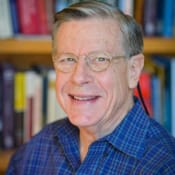
(1946 - )
Glendale, California USA
Areas of Specialization: Social Psychology, Happiness
Currently, Ed Diener is everywhere, holding professor of psychology spots at the University of Utah and the University of Virginia, as well as being a senior scientist at the Gallup Organization. On top of that, he holds the title of Joseph R. Smiley Distinguished Professor Emeritus at the University of Illinois Urbana-Champaign. Diener earned his BA in psychology from California State University, Fresno in 1968, and his Ph.D. from the University of Washington in 1974. Though he retired from teaching in 2008, Diener came back to the game in 2015.
Diener is best known for his work in the study of happiness. In fact, you more likely know of Diener by his nickname, “Dr. Happiness.” Of course, it’s not as simple as merely studying the emotion of happiness. Diener specializes in the field of subjective well-being, or how people evaluate their lives. On this subject, Diener has studied happiness and subjective well-being in relation to numerous influences, including income, culture, and benefits. Although the secret to happiness can’t be boiled down to a single factor, if you’re looking for a quick answer, Diener’s work suggests that the most prominent characteristic shared by the happiest people is that they have strong ties with friends and family, and spend plenty of time with them. Popular published works by Diener include,International Differences in Well-Being and Happiness: Unlocking the Mysteries of Psychological Wealth.
For his work, Diener has received awards and honors including th Distinguished Scientific Contribution Award from the American Psychological Association and the William James Fellow Award.
University of Utah Academic Website
19.Philip Zimbardo

(1933 - )
New York City, New York, USA
Areas of Specialization: The Lucifer Effect, Time Perspective Therapy, Social Intensity Syndrome
Philip Zimbardo holds the title of Professor Emeritus at Yale University, and previously taught at Columbia University, New York University, and Yale University. In 1954, Zimbardo earned his BA in psychology, sociology, and anthropology from Brooklyn College, and completed his MS and Ph.D. in psychology at Yale University in 1959.
Zimbardo is best known for his infamous 1971 Stanford prison experiment, and what he termed “The Lucifer Effect,” discussed in the book of the same name. The experiment was received with controversy and criticism, both in terms of ethics and scientific rigor. Regardless, Zimbardo’s findings argue, in summary, that imbalances of power between people lead to corruption and abuse. Later, amid the fallout of the 2004 Abu Ghraib Prison torture scandal, Zimbardo published The Lucifer Effect: Understanding How Good People Turn Evil, examining the issue and reflecting what he found in his experiment. The book on the subject was popular among mainstream audiences, and remains a regular point of discussion in both college psychology and ethics courses. Other published works by Zimbardo include The Time Paradox which discusses the psychological science of time.
For his work, Zimbardo has received a variety of honors and awards, including the Gold Medal for Lifetime Achievement in the Science of Psychology from the American Psychological Foundation, and an honorary doctorate degree from SWPS University in Warsaw.
20.James C. Kaufman
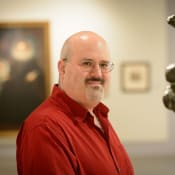
(1974 - )
Great Neck, New York, USA
Areas of Specialization: Creativity, Cognitive Psychology, Educational Psychology, Personality Psychology
James C. Kaufman is a Professor of Educational Psychology at the University of Connecticut, and previously worked at California State University, San Bernardino. Kaufman completed his undergraduate studies at the University of Southern California, and earned his Ph.D. in cognitive psychology at Yale University.
Kaufman’s work is centered in cognitive psychology, and he is best known for his research in creativity and mental illness. In particular, he is known for having coined the “Sylvia Plath Effect,” (named after the poet), which argues that female writers are generally more susceptible to mental illness than male writers, a concept that certainly has not gone without controversy or dismissal. Additionally, Kaufman is a founding co-editor of the academic journals Psychology of Popular Media Culture and Psychology of Aesthetics, Creativity, and the Arts.
Popular works by Kaufman include Teaching for Creativity in the Common Core Classroom, Creativity 101, and Pseudoscience: The Conspiracy Against Science.
For his work, Kaufman has received awards including the Daniel E. Berlyne Award, the E. Paul Torrance Award from the National Association of Gifted Children, and the Rudolf Arnheim Award.
21.Jean Decety

(1960 - )
France
Areas of Specialization: Cognitive Psychology, Social Decision Making
Jean Decety is an American and French neuroscientist who is currently the Irving B. Harris Distinguished Service Professor at the University of Chicago. His area of specialty is in cognitive neuroscience and psychology, including social, affective, and developmental neuroscience. Decety received three advanced degrees in neuroscience, cognitive psychology, and biomedical engineering from Claude Bernard University Lyon 1 in France. He also received his Ph.D. from Bernard.
Decety’s research focuses on the neurobiological and psychological mechanisms involved in social decision making, and motivations for moral behavior such as empathy and attributions of justice. In particular, he explores the evolutionary underpinnings of empathy, including how it develops in young children. For his work on morality, he is interested in the phenomenon of generosity as it develops in early childhood and is expressed in a society. Importantly, Decety believes that technologies like functional neuroimaging (fMRI, for example) can help illuminate how traditional concepts like morality (empathy, generosity, or justice) are manifest in the brain. Decety’s work integrates psychological research with modern neuroscientific techniques and research, and is regarded as an exciting frontier in psychology (and neuroscience).
Decety has been the founder and editor-in-chief of the journal Social Neuroscience. He also serves on the editorial boards of Development and Psychopathology, The European Journal of Neuroscience, The Scientific World Journal, Frontiers in Emotion Science, and Neuropsychologia. Decety along with colleague John Cacioppo created the Society for Social Neuroscience in 2010.
22.Daryl Bem

(1960 - )
France
Areas of Specialization: Social Psychology, Self-Perception Theory
Daryl Bem holds the title of Professor Emeritus at Cornell University. Previously, Bem has held professorial roles at Stanford University, Harvard University, and Carnegie Mellon University. Bem was initially a student of physics, and earned his BA in the field at Reed College. Bem soon went to Massachusetts Institute of Technology, but decided to change his career path to psychology after becoming inspired by the Civil Rights Movement.
An influential figure in social psychology, Bem is perhaps best known for developing self-perception theory. Through this approach, Bem theorizes on how our attitudes and perceptions of ourselves, not just in relation to others, but within ourselves. Bem argues that our own behaviors alter our self-perceptions, but through a kind of cognitive dissonance, we reconcile these altered views as part of a self-perception that we have always held. Moreover, Bem is known for two controversial views, both of which were generally criticized for lacking scientific rigor. The first is his exotic becomes erotic theory, which attempts to explain non-heteronormative sexual attraction from childhood developments. The second is his views on the legitimacy of PSI and ESP (parapsychology), which he defended in his “Feeling the Future” article in the Journal of Personality and Social Psychology.
Bem is a fellow of the American Psychological Association, as well as the Association of Psychological Science Parapsychological Association.
23.Paul Bloom

(1963 - )
Montreal, Quebec, Canada
Areas of Specialization: Moral Psychology, Cognitive Psychology
Paul Bloom currently holds the title of Brooks and Suzanne Ragen Professor of Psychology and Cognitive Science at Yale University. A native of Montreal, Quebec, Canada, Paul Bloom earned his BA in psychology at McGill University in 1985. He then completed his PhD in cognitive psychology at the Massachusetts Institute of Technology in 1990. Prior to his role at Yale, Bloom taught at the University of Arizona.
Bridging the gap between moral psychology and cognitive psychology, Bloom’s work looks at how we develop our conceptions of morality, our moral selves, and free will. In particular, Bloom is famous for his research in moral development in children. In his book Just Babies: The Origins of Good and Evil, Bloom refutes the notion that humans are born without any moral sensibilities, and that we instead have some innate form of morality, even as babies. Additionally, Bloom is interested in the psychology behind pleasure, and how and why we enjoy things, especially works of fiction.
Other notable works from Bloom include How Pleasure Works: The New Science of Why We Like What We Like and Against Empathy: The Case for Rational Compassion.
Bloom has received numerous awards and honors in the field, including the Stanton Prize from the Society for Philosophy and Psychology, Lex Hixon Prize for teaching excellence at Yale, the Klaus J. Jacobs Research Prize, and fellowship with the American Psychological Association.
24.Robert Sternberg
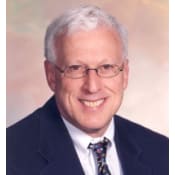
(1949 - )
Newark, New Jersey, USA
Areas of Specialization: Cognitive Psychology, Triarchic Theory of Intelligence, Triangular Theory of Love, The Three-Process View
Robert Sternberg currently holds the title of Professor of Human Development at Cornell University. Previously, he has held professorial and administrative roles at the University of Wyoming, Oklahoma State University–Stillwater, Tufts University, and Yale University. Additionally, Sternberg is a former president of the American Psychological Association. Sternberg earned his BA in psychology at Yale, and his Ph.D. at Stanford University in 1975.
Sternberg is best known for work in psychometrics and his theories of cognition and emotion, particularly his triarchic theory of intelligence. Sternberg argues there are three types of intelligence: componential, experiential, and practical. This approach questions and resists the accuracy of “traditional” intelligence tests, arguing that they overlook the significance of practical or contextual intelligence. Following through on this argument, Sternberg developed the Sternberg Triarchic Abilities Test. Beyond this, Sternberg is known for this triangular theory of love, and his theory of cognitive styles. In his book, Love Is a Story: A New Theory of Relationships, Sternberg expounds upon 26 different types of love stories and helps guide readers on discovering their own love story and understand relationships with new perspectives.
For his work, Sternberg has received a variety of honors and awards, including the Cattell Award from the American Psychological Society, the Career Achievement in Educational Psychology Award from the Society for Educational Psychology, and the Grawemeyer Award for Psychology.
25.Elizabeth Loftus

(1944 - )
Los Angeles, California, USA
Areas of Specialization: Cognitive Psychology, Psychology and Law, Human Memory
Elizabeth Fishman Loftus is currently a Distinguished Professor of Social Ecology, at the University of California, Irvine, as well as a professor of law, a professor of cognitive science, and the director of The Center for Psychology and Law. Previously, Loftus held positions at the University of Washington, New York University, and Harvard University. Loftus completed her undergraduate studies at the University of California, Los Angeles in 1966, and earned her MA and Ph.D. at Stanford University in 1970.
Loftus is best known for her work in the areas of cognitive psychology, particularly in regards to memory. Some of Loftus’ best-known work involved research into the accuracy of eyewitness testimony, and whether or not memory and recollection can be altered later, such as by suggestive questioning. Loftus found that semantics can indeed have an effect on how an eyewitness remembers an event, and coined the phrase “misinformation effect,” referring to a paradigm that describes this phenomenon. Stemming from this, Loftus has served as an expert witness in numerous high-profile trials, including the murder trials of O.J. Simpson, and of Ted Bundy. Later, and with plenty of surrounding controversy, Loftus researched the idea of implanting false memories, arguing that her findings show it is possible to implant false memories, such as those of childhood trauma.
Published works from Loftus include, The Myth of Repressed Memory: False Memories and Allegations of Sexual Abuse and Witness for the Defense: The Accused, the Eyewitness, and the Expert Who Puts Memory on Trial.
For her work, Loftus has received numerous awards and honors, including being made a fellow of the American Academy of Arts and Sciences and a fellow of the British Psychological Society, as well as a Lifetime Achievement Award from the Western Psychological Association, an Isaac Asimov Award from the American Humanist Association, and a Howard Crosby Warren Medal from the Society of Experimental Psychologists.
Honorable Mentions in Psychology
- Mahzarin Banaji, Harvard University
- John Bargh, Yale University
- Susan Blackmore, University of Plymouth
- David Buss, University of Texas at Austin
- Leda Cosmides, University of California, Santa Barbara
- Mihaly Csikszentmihalyi, Claremont Graduate University
- Richard Davidson, University of Wisconsin-Madison
- Paul Ekman, University of California, San Francisco
- Lisa Feldman Barrett, Northeastern University
- Howard Garnder, Harvard University
- Michael Gazzaniga, University of California, Santa Barbara
- Anthony Greenwald, University of Washington, Seattle
- Steven C. Hayes, University of Nevada
- Ray Hyman, University of Oregon
- Stanley Krippner, California Institute of Integral Studies
- Eleanor Rosch, University of California, Berkeley
- Daniel Schacter, Harvard University
- Paul T.P. Wong, Saybrook University